The start of this new decade will forever be identified with the coronavirus pandemic, and it has shoved the normally low profile pharmaceutical industry out of the background into the spotlight.
The past year was marked by rapid vaccine development. 2021 will be different, as much of the Pharma industry focuses its energies on mass vaccine production.
Within this pandemic environment, we take a deeper look at the key trends to watch across all of the pharmaceutical industry in 2021.
The Success of mRNA Coronavirus Vaccines Opens the Door to a Wider Genomic Medicine Revolution
When we first wrote about coronavirus vaccine development a year ago, we shared the skepticism of many health experts who, based on previous experience, believed it would take at least 18 months to develop and deploy a successful vaccine – at the very quickest!
Little did we know at the time that scientists at Moderna had developed a theoretical messenger RNA-based vaccine design in just 48 hours before the US had its first recorded case – and they had a working prototype ready to test on lab animals just 6 weeks after that.
The crash vaccine development programs at Moderna (and fellow mRNA vaccine pioneer Pfizer BioNTech) have accelerated the adoption of mRNA vaccine technology by many years – and the potential for treating other diseases using this technology is great – making this one of our top bellwether trends for 2021.
Speaking to MIT Technology Review, Moderna’s CEO Stéphane Bancel, whose company’s stock has made him a millionaire on paper, points out that the mRNA components can be reprogrammed – just like software. “The way we make mRNA for one vaccine is exactly the same as for another,” he says. “Because mRNA is an information molecule, the difference between our Covid vaccine, Zika vaccine, and the flu vaccine is only the order of the nucleotides.”
In theory, this new technology could allow scientists to develop vaccines and clinical treatments for many of the most stubborn diseases, including sickle-cell anemia, HIV, herpes, infant respiratory virus, liver disease, and malaria.

Coronavirus Vaccines Will Become a Recurring Revenue Stream
The coronavirus vaccine has not been well-controlled in many nations, and unfortunately, Covid-19 has taken advantage of this opportunity to develop new viral strains, which complicate efforts to successfully vaccinate populations in time to achieve herd immunity.

Strain B.1.1.7, which was first detected in the UK, has now spread to America. It’s much more contagious than the original strain, and B.1.1.7 infections are reportedly doubling every 10 days, which means that this UK variant will be the dominant strain in the US sometime in March.
These variants, such as the B.1.315 South African one, can significantly reduce the effectiveness of certain vaccines. The South African government recently halted its rollout of AstraZeneca’s Covid-19 vaccine because it was found to only be 10% effective against B.1.315.
That’s not the only discouraging news. Some of these new variants may also reinfect people who have already had the original version of the coronavirus.
The emergence of these new variants is causing a rethink among public health officials about the strategy for developing herd immunity.
In the future, we may come to view coronavirus vaccination programs as an annual event, much like getting an annual flu shot, where people need to be re-inoculated against whatever variant of the disease is currently circulating among the population.
Albert Bourla, CEO of Pfizer, was recently asked about whether Covid vaccination programs will follow the pattern of annual flu shots. “We do not know yet, but it looks like Covid is here to stay,” says Bourla. “But also, it looks like we have the tools to make Covid like the flu. That means it will not disturb our lives or the economy. We just need to be very vigilant about [tracking new] strains. And we need to be very vigilant about vaccinating people.”
(The good news for Pfizer is that preliminary studies indicate that its vaccine will work against the current generation of virus variants.)
What are the implications for the pharma industry overall?
First, as Bourla suggests, we are going to have to significantly beef up our ability to perform rapid genomic sequencing across the US to detect new variants early.
The second implication is that the nascent Covid vaccine industry will need to transition to an FDA approval process that is modeled after flu vaccines; this approach, known as bridging studies, allows regulators to assess and approve minor changes in a vaccine formulation to account for different virus variants without having to redo massive vaccine trials, which can take many months.
Plans for this are already underway. Both Moderna and Pfizer have indicated that they are ready to alter their mRNA vaccines as needed, and Glaxo Smith Klein (GSK) and CureVac recently inked a $183 million deal to develop a vaccine that addresses multiple variants in one shot.
The financial implications for the pharmaceutical industry may be significant. The revenue model for a recurring vaccine is potentially much more lucrative than one that only needs to be administered one time.
World-Wide Pharma Supply Chain Challenges Through 2022

Our third trend touches on how the pharmaceutical industry is being dragged into national politics as efforts are underway to ramp up vaccine production around the world.
An unfortunate diplomatic dustup between the European Union and the UK took place last week when it emerged that vaccines produced in Europe for delivery to the UK were proceeding at pace while those destined for Europe were facing significant delays.
The situation got ugly quickly, as EU officials accused AstraZeneca officials of not adhering to their vaccine production contracts and temporarily threatened to prevent the export of UK-bound vaccination supplies.
All the parties quickly climbed down from their counterproductive positions, but not without creating a wider sense of distrust and the fear that this will be the first outbreak of “vaccine nationalism” where countries fight over limited supplies of vaccines.
Pharmaceutical executives are also wary that Europe may seek to abrogate patents to increase production as well as turn to Chinese or Russian vaccines to fill in the gap in their languishing vaccination efforts.
Meanwhile, Canada, which is also facing shortfalls in its vaccine supply, has raised eyebrows among public health officials by tapping into the World Health Organization’s COVAX program originally intended for providing low-cost vaccines to Third World countries.
Here in the US, there was good news as Pfizer announced it intends to reduce the time it takes to produce a batch of Covid 19 vaccines from around 110 days to only 60 days on average.
And Pres. Biden plans to invoke the Korean war era Defense Production Act (DPA) to compel certain American companies to speed up the production of PPE and other equipment needed to expand coronavirus vaccination programs across the country. (It’s not known if this will include Ford Motor Company, which has recently patented a transparent facemask that they hope will be approved by NIOSH.)
The bottom line is that many of the major pharmaceutical companies will be tied up over the next year or two with efforts to ramp up production of coronavirus vaccines – or the supporting medical equipment, including PPE, glass vials, syringes, and the like.
US Healthcare Systems Suffer from Lack of Trust and Need a Major Overhaul…
We recently wrote how Covid vaccination programs across the US have been undercut by inefficient – or even dysfunctional – data collection processes.
Unfortunately, we don’t have eyes and ears on the ground because, unlike times past, drug researchers and public health officials have big data number-crunching technology to take advantage of massive amounts of data if we could only collect it.
There are widespread suspicions that many of the states have been holding back important public health data. For example, a Covid expert at Rice University recently pointed out that up to 95% of Texas Covid cases weren’t reported to the CDC in the summer of 2020. And in Florida, a high-level public health official was fired by the state of Florida because she claims that she would not fix the numbers to make them look better than they were. After her firing, she created a publicly accessible virus database and was later arrested by state officials for handling proprietary state data.

While we cannot vouch as to whether there is a valid legal case against this data scientist or not, it’s not a good look.
It’s urgent that all participants in the public health system, including pharmaceutical companies, take a deep breath and assess how they can work together to rebuild public trust.
Action is needed now to make the current Covid vaccine program successful as well as help prepare us for the next pandemic.
Vaxhoaxers Remain a Roadblock to Coronavirus Herd Immunity
We need to rebuild faith in public health institutions, pharmaceutical industry executives, and scientific experts in general to convince people who have a long-standing distrust of vaccines that they need to get vaccinated this time.
Why?
The emergence of new coronavirus variants puts us in a deadly race with the virus, which will only come to an end when we have vaccinated enough people to achieve herd immunity. And, if you haven’t noticed, that goalpost has moved as well. Dr. Fauci now believes that we need to achieve vaccination rates of 85% or more to achieve general herd immunity, a number which he says has gone up due to the emergence of these coronavirus variants.
Effective education programs are key to this, as well as community outrage. Social media companies also have a role to play; Facebook recently announced it has plans to block inaccurate misinformation about vaccination programs.
Healthcare Reimbursement Rates to Revert to Status Quo…
Pres. Biden has been busy in his first weeks of office, having issued at last count nearly 3 dozen Executive Orders.
For the pharmaceutical industry, there appears to be little change on the short-term horizon.
As evidence of this, Pres. Biden has yet to nominate someone to lead the CMC (the agency responsible for federal Medicare and Medicaid).
And Pres. Biden is slow-walking the prescription discount plan touted by former Pres. Trump during the final months of his term. The Biden administration has delayed implementing this plan for a year, and it’s quite likely that it may be killed off at some point in favor of different policies and objectives.
So far, the only outward-facing policy change is the reopening of the healthcare.gov insurance exchanges so that recently unemployed people have an opportunity to enroll in healthcare insurance plans.
There are rumors of additional changes in the future as well, including reinstating incentive plans to encourage states that have not yet done so to expand Medicaid coverage for low-income earners, increasing AMA subsidies for unemployed workers, and capping contributions at 8.5% of their income even if they are high-income earners.
…But Healthcare Providers Face Severe Revenue Challenges
Meanwhile, many healthcare providers and hospital systems are facing a severe financial crunch due to the coronavirus epidemic, which is increased costs for them and reduced the revenue as potential patients have stayed away from elective procedures—and even emergency-room visits—in droves.
Another financial pinch comes from telehealth visits, which have, pardon the pun, zoomed into common usage in lieu of in-person doctor visits. But this creates a problem as government and insurance companies offer much lower reimbursement rates for telehealth visits, often just pennies on the dollar.
(The only upside appears to be flu prevention programs. The incidence of influenza among the population is way down compared to previous flu seasons, presumably due to increased social distancing, no handshaking, increased handwashing, and mask-wearing.)
Healthcare providers—and by extension pharmaceutical companies—will be watching developments in Washington very carefully as efforts to pass a $1 trillion-plus stimulus/recovery plan make their way through Congress and the Senate.
A large appropriation could help fund local hospital systems, healthcare providers, and efforts to expand vaccination programs across the country. It’s not clear yet how much money might be directed to vaccine research and other science funding; we shall wait and see.
Financial Markets Fund Biomedical, Pharma, and Healthcare IPOs and SPACs
2021 kicks off with three large initial public offerings (IPO) on Wall Street.
The first is the genetic testing company that’s focused on consumers, 23 and me.
The second is Vor Biopharma, which brought in $177 million in Wall Street funding.
And the third is the health insurance company Oscar Health, headed by Josh Kushner, the brother of Jared Kushner, Trump’s son-in-law, who most recently worked in the White House.
But what about funding approaches for smaller emerging biotech companies, especially those working on drug development for orphan diseases or other important but financially smaller markets?
Andrew Lo, professor of finance at MIT and director of the Laboratory for Financial Engineering at the MIT Sloan School of Management, has created a new venture company, BridgeBio Pharma, that raised $9 million to support early-stage drug development and other biotech companies.
This approach is in keeping with a larger trend on Wall Street to create SPACs (special purpose acquisition company) that serve as fund-raising ventures (including a public IPO), allowing for subsequent strategic acquisitions once the funding is in place.
Will these new funding models be part of a new biomedical renaissance? It’s something to watch in 2021.

AI in Healthcare Moves Forward, but FDA is Cautious about Benefits
As alluded to earlier, big data analysis, powered by artificial intelligence and machine learning, is playing a critical role in nearly every industry, including pharma and healthcare.
New developments in AI medicine are making a big splash in the press.
For example, one AI algorithm is credited with preventing suicides among veterans.
Another is using AI algorithms to analyze the writing of suspected Alzheimer’s patients to assess whether they are likely to progress to a full-blown Alzheimer’s diagnosis.
All this sounds very promising.
But, according to STAT, US regulators have approved more than 160 medical products based on AI technology in recent years (making it the fastest-growing sector of medicine), but there is new concern about whether the evaluation process is sufficient. Questions have arisen whether the FDA’s approval process, for example, considers a broad enough spectrum of clinical data to ensure that a sufficient number of patient races, genders, and geographical/socioeconomic are evaluated during the approval process.
It’s important to get this right. AI can be an incredibly powerful tool when developed and vetted properly, but it can also reinforce biases (much like the human mind can), which can create a lasting negative effect on health care outcomes.
AI regulatory developments will definitely be on our radar in 2021.
Formaspace Is Your Pharmaceutical Lab and Manufacturing Partner
If you can imagine it, we can build it – here at our factory headquarters in Austin, Texas.
Our laboratory and manufacturing specialists can work with you to develop custom furniture solutions to improve the efficiency of your laboratory, manufacturing, and distribution operations.
Take the next step.
Contact your Formaspace Design Consultant today and find out why leading names in the pharma and biotech research and manufacturing industry, including Roche and Chan Zuckerberg Biohub, choose Formaspace.














